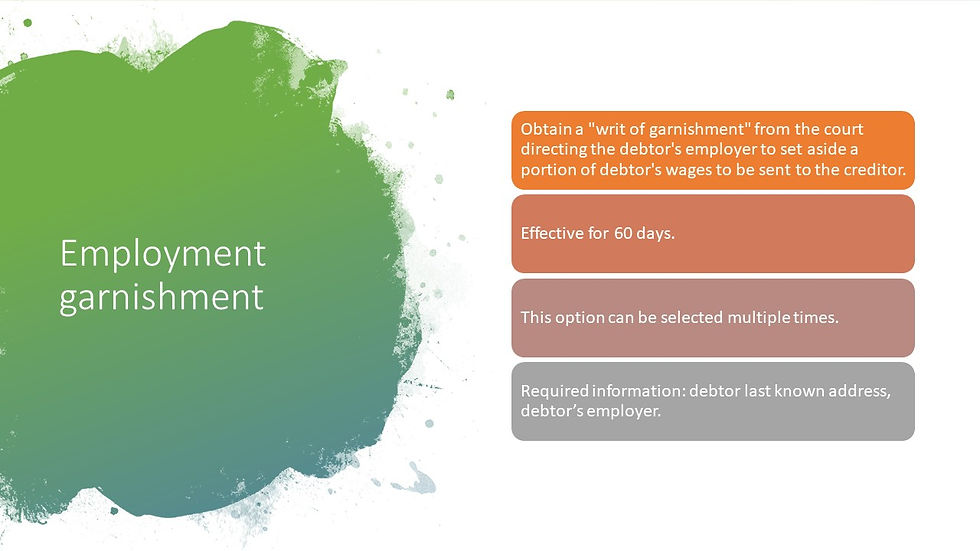
Small claims - big results
After a small claims judgment is entered it becomes an enforceable order from the Court if not paid within 30 days. The law provides that attorney fees incurred for collecting a small may also be awarded, but it should not be assumed that they will be..
Small claim judgments that are being enforced are technically district court civil judgments. They do not usually automatically attach as a lien on real property. A relatively easy process is needed for such a lien.
Before the small claims court hearing occurs it is important to be prepared. We've assisted clients in evaluating whether a case belongs in small claims and, if so, assisting in preparing for that hearing by walking through the process, preparing trial binders, assisting with exhibits, and demonstrating relevant law that you can use during your hearing to prove your case. You want be able to show the judge your best evidence quickly and efficiently.
After a small claims judgment is entered it becomes an enforceable order from the Court if not paid within 30 days. The law provides that attorney fees incurred for collecting a small may also be awarded, but it should not be assumed that they will be..
The primary methods of collecting small claim judgments are bank or employer garnishments. Most other avenues for collection are expensive and time consuming relative to the amount of the judgment.
A small claim is one where the amount owing is $10,000 for an individual ("natural person") or $5,000 for a business. An attorney cannot appear in court for you, but can assist in collecting any judgment entered.

Writ of garnishment to employer

Garnish debtor's bank account

Subpoena employment records from State to determine an employer to garnish

Obtain new judgment for costs incurred in collecting on small claims judgment

Coordinate with private investigator for comprehensive report. Thereafter motion for a judgment for the costs

Initiate small claims case by preparing notice of claim and sending for service

Draft demand letter to debtor requiring debtor to make payment arrangements.

Elevate small claims to superior court and record judgment as lien

Consult with lawyer for small claims hearing

Satisfaction of judgment upon payment of all amounts owing

Renew judgment before it expires at the 10 year mark
1.
Employment garnishment
2.
Bank garnishment
3.
Motion and, if granted, subpoena to Employment security department (finds employers).
4.
Coordinate with private investigator for comprehensive report ($900-$1200) and motion the court for judgment from that cost
5.
Draft small claims court complaint, file, and arrange service on defendant (additional costs of approximately $120).
6.
1 hour consultation with lawyer on presenting and preparing for small claims hearing
7.
Demand letter to debtor to pay judgment.
8.
Elevate from district to superior court and record with designated county (additional cost approximately $125).
9.
Motion court for additional judgment based on fees paid to law firm.
10.
Renew judgment (within 6 months of 10-year expiration).
11.
Draft and file satisfaction of judgment
